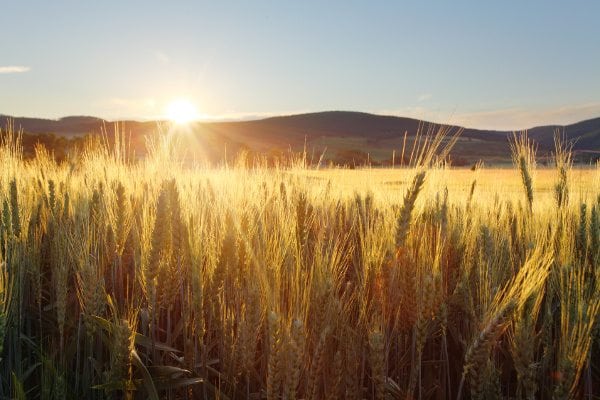The grain trade has a keen interest in following and contributing to the plant breeding innovation debate. Although there are many benefits associated with the products of plant breeding innovation, the products also pose a potential risk for trade disruption. The grain and seed trade are having a very healthy interaction on plant breeding innovation, sharing point of views and thoughts, which is helping to mitigate the differences in the approach towards the commercialisation of these innovative products.
Not only the seed trade is affected by the potential outcome of the discussions on regulating products of plant breeding innovation, also the grain trade has a keen interest in following and contributing to this debate. European Seed asked Teresa Babuscio, Secretary General of COCERAL, for her take on plant breeding innovation and the impact on the EU grain trade.
European Seed (ES): Teresa, for the past few years, we’ve been reading a lot about these new techniques. In your view, which are the pros and cons of the new techniques in general and more specifically for the EU grain trade?
Teresa Babuscio (TB): Innovation in plant breeding may represent an improvement with respect to previous breeding methods and could make an important positive contribution in overcoming societal contemporary challenges such as the need to produce more food, using less resources, in a more sustainable way.
These innovative breeding techniques also allow creations of varieties more resistant to diseases or pests or requiring lower use of plant protection products or other agricultural treatments.
Plant breeding innovation could also benefit consumers, inasmuch as they provide for reliable and good-value-for-money products with improved nutritional characteristics, different taste, reduced allergens, longer shelf life, etc. At the same time, they open access to high-quality plant varieties that allow farmers to produce food and feed in a more efficient and sustainable manner, thus generating much needed economic benefits. And, of course, contributing to a more sustainable agri-food production ultimately benefits us all.
In light of use and availability of new breeding technologies, the global grain trade faces new and expanded challenges largely related to meeting regulatory and customer requirements. For instance, while new plant varieties developed with the help of certain methods may be exempt from regulation in one country, they may be subject to regulation in another country or, as in most cases, there remains a significant level of uncertainty. This legislative uncertainty is of great concern for the trade. Plant breeding innovation also has significant potential to disrupt global trade and may impact the entire value chain, thus their introduction on the market needs to be managed responsibly.
[tweetshareinline tweet=”Plant breeding innovation has significant potential to disrupt global grain trade and may impact the entire value chain, thus their introduction on the market needs to be managed responsibly.” username=”EuropeanSeed”]
ES: The European Commission has been discussing how to interpret the definition of GMOs in relation to organisms produced by new plant breeding techniques. Why is this taking so long, and how can we speed this up?
TB: Plant breeding innovation is a very sensitive topic from a political point of view. The consequences linked to the legal classification of these innovative techniques are massive. Depending on the regulatory framework under which genome editing techniques will be regulated, it will be easier or more difficult for EU farmers to have access to them. As France has referred a case to the European Court of Justice, asking for clarification on how to interpret newly developed mutagenesis techniques, the EU Commission has decided to wait for the outcome of this case before acting on the topic. Thus, it is difficult to imagine speeding things up, at least until next spring, when the judgment is likely to be available. Then, it will be important to engage and contribute to the political debate on plant breeding innovation trying to ensure legal certainty in the shortest delay. In this respect, government engagement and consumer acceptance and confidence in the products bred through these innovative techniques will play a major role. However, part of the EU’s responsibility is to ensure that this process moves forward and remains timely, especially as other jurisdictions proceed.
[tweetshareinline tweet=”Part of the EU’s responsibility is to ensure that the process on plant breeding innovation moves forward and remains timely, especially as other jurisdictions proceed.” username=”EuropeanSeed”]

TB: COCERAL supports science and innovation and believes that innovative tools must be accessible to farmers and producers in a level playing field, in the EU as well as in Third World countries.
Nonetheless, any plant variety bred through these innovative techniques placed on the EU market must be safe and must not pose risks to human and animal health or to the environment. Thus, the conditions under which the products derived should be marketed, depend on the degree of risk, if any, posed by the end product.
A regulatory approach that would require pre-market approval should therefore be limited only to those cases where health concerns at stake are high enough to require prior scrutiny by a food safety agency.
[tweetshareinline tweet=”A regulatory approach that would require pre-market approval should be limited to those cases where health concerns are high enough to require prior scrutiny by a food safety agency.” username=”EuropeanSeed”]
ES: What will be the impact for the EU grain trade of regulating these new techniques in the same way as GMO’s?
TB: If these new techniques were to be indistinctively subject to GMOs regulation – we are told that – a big portion of the EU plant breeding companies, which are the small and medium sized enterprises (SMEs) would be excluded from applying these tools and would exclude the application of innovative breeding techniques for plants other than the major crops (e.g., maize and soybeans). In addition, SMEs would likely not be able to withstand the competition from non-EU companies able to use these techniques without the constraints of any GM legislation and therefore have a lower cost base. Overall, this would have a substantial negative impact on jobs, research and economic growth in the EU.
[tweetshareinline tweet=”If the new techniques were to be indistinctively subject to GMO regulation, this would have a substantial negative impact on jobs, research and economic growth in the EU.” username=”EuropeanSeed”]
Moreover, and importantly from a competitive standpoint, many of those applications lead to plant materials that, to date, cannot be identified and distinguished from their counterparts obtained by conventional breeding. If considered equivalent to GMOs, the impossibility to distinguish products derived from most innovative breeding techniques from those obtained through conventional breeding would lead to important problems of enforcement and implementation that would seriously impact trade.
ES: At the moment we are seeing a divergence between countries in how they regulate these new techniques. What are the pitfalls of such an approach, and what needs to be done?
TB: Regulatory coherence around the world is of paramount importance to enable trade to work efficiently, without facing hurdles. Regrettably, we are indeed witnessing the divergences in the legal approach towards these innovative techniques around the world, which is of a great concern for the grain trade sector due to the intrinsic characteristics of the bulk commodities way of operating. Indeed, the trade in grains and oilseeds is tied inextricably to global sourcing to achieve a sustainable supply of these basic commodities.
To secure the good functioning of trade and the full enjoyment of the economic and social benefits accruing from trade flows, COCERAL is working with its global counterpart the International Grain Trade Coalition (IGTC) to encourage regulators across the globe to come together on predictable, coherent and harmonised regulatory approaches to plant breeding innovations.
[tweetshareinline tweet=”COCERAL is encouraging regulators across the globe to come together on predictable, coherent and harmonised regulatory approaches to plant breeding innovations.” username=”EuropeanSeed”]
ES: The plant breeding and seed trade sector has also been very active in this debate. How is the interaction between grain and seed trade?
TB: Grain and seed trade are having a very healthy interaction on plant breeding innovation, sharing point of views and thoughts since many months now. The trade needs to be aware of the use of such plant breeding innovation methods to be able to respond to commercial requirements in order to efficiently and cost-effectively market and use resulting products. Breeding and seed companies that are implementing plant breeding innovation methods are best placed to provide accurate information, at the start of the value chain to identify and mitigate any risks related to marketability and public acceptance, and to avoid trade disruption. There is an ongoing and positive dialogue, aimed at understanding the specific trade needs and collaborating to identify, discuss and implement pragmatic, achievable and effective information-sharing solutions.
ES: Are there any points of differentiation between the grain trade and the seed trade. How could these different points of view be amended?
TB: The constant and positive dialogue that the two sectors have started, both at European and at global level, is helping to mitigate the differences in the approach towards the commercialisation of these innovative products. Some milestones have already been reached but it’s fundamental that the dialogue goes on, in order to find a feasible point of alignment. This is the trade sector hope and the seed sector is committed to collaborate on this.
Editor’s Note: COCERAL is the European association of trade in cereals, rice, feedstuffs, oilseeds, olive oil, oils and fats and agro-supply. The organization represents the interests of the European collectors, traders, importers, exporters and port silo storekeepers of the above-mentioned agricultural products. With about 3,500 companies as part of COCERAL national members, the sector trades agricultural raw materials destined to the supply of the food and feed chains, as well as for technical and energy uses.













